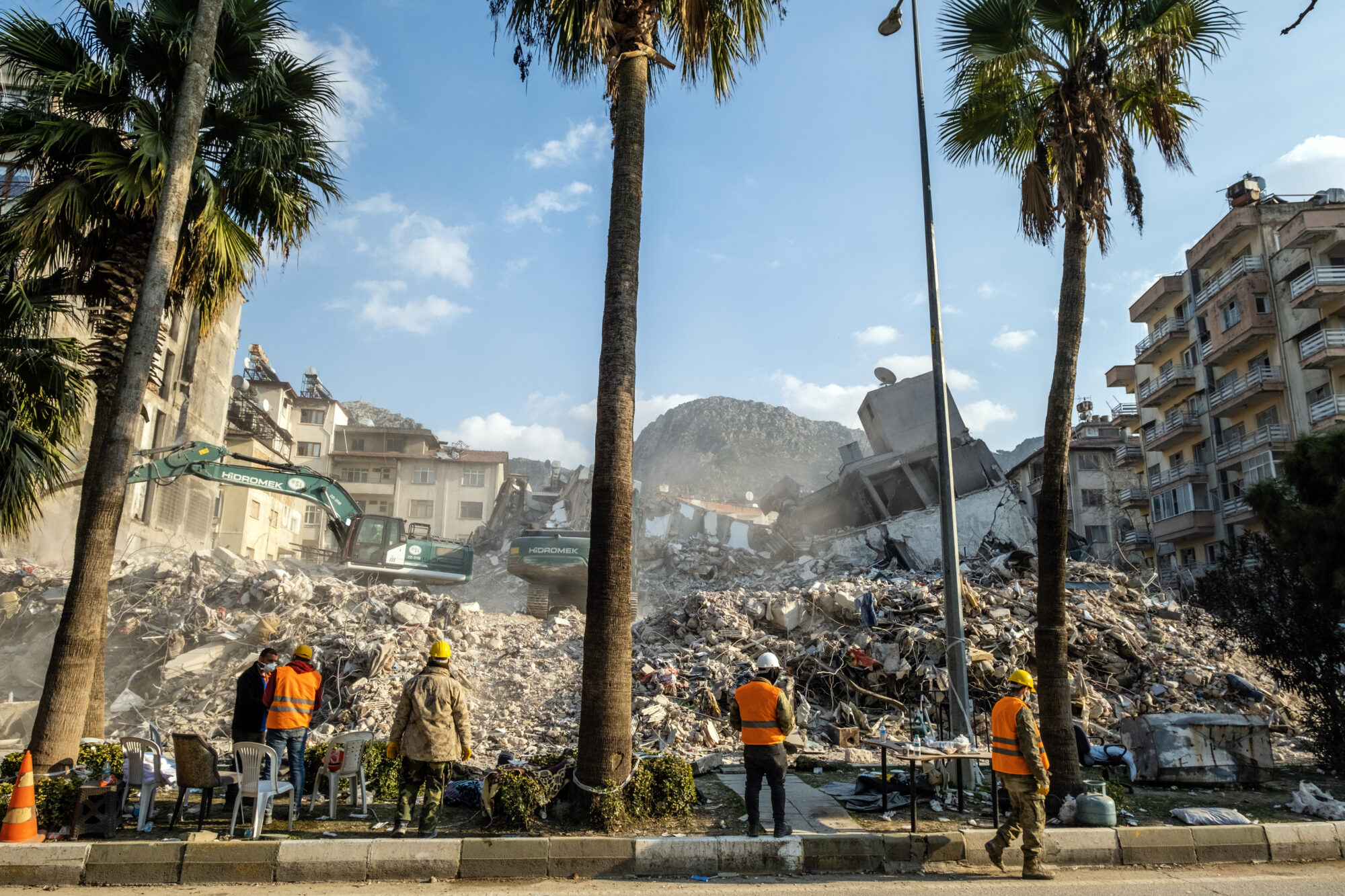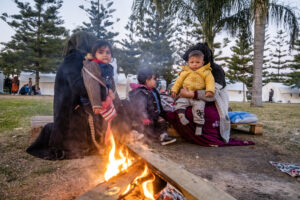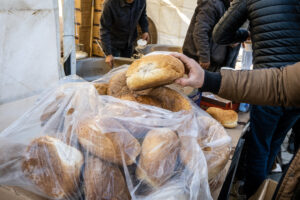Natural disasters can strike anytime and anywhere. They leave millions of people in need. Those in the path of storms, earthquakes or hurricanes often find themselves hungry, homeless and hopeless.
Thanks to the long-term commitment of Southern Baptists, missionaries can respond quickly to unexpected disasters with more than physical assistance. Missionaries understand the greatest need people have when they lose everything on earth – eternal hope in Jesus Christ.

Central Asia is a region where natural disasters are common. Large earthquakes, like February’s earthquakes in Turkey and Syria, make the national news, but earthquakes of all sizes are also common there. Even small earthquakes can block roads, cutting off entire areas from aid. Central Asia also faces other catastrophic events like extreme temperatures, mudslides, floods and avalanches.
Disaster relief ministry is vital in Central Asia, and IMB workers are uniquely positioned to respond. In the first six months of 2023, they have been involved in more than 80 different projects that have included things like clean water systems, flood and earthquake relief, trauma care, food distribution, women’s health initiatives and job skills training for refugees.

IMB missionaries have served Central Asians for decades. This means when disaster strikes, we have relationships already in place. We can work alongside local churches and believers to reach their communities. IMB Photo
IMB workers have been faithful to plan these projects and undergird national believers to help their own villages, towns and people. For missionaries, their love and compassion for people groups doesn’t form when disaster hits. They’ve loved the people they serve for many years, some decades. They’ve learned the languages and the customs. And many face the realities of natural disasters along with their national friends.
“For us, it’s about relationships,” Robert Botta said. Botta has served among Central Asian peoples for over two decades. He is one of many workers who focus on relief work.
“Despite the challenges posed by limited resources and a shortage of evangelical churches and believers in the affected region,” Botta said, “our national partners have found ways to serve vulnerable communities by supporting compassion-filled local believers.”
Missionaries report that national churches find ways to be the hands and feet of Jesus while sharing a message of eternal hope. By strengthening local churches and believers, compassion isn’t a one-time occurrence or only a response to immediate need. The benefit of working through partners on the field who have relationships with nationals is that aid is closely linked to long-term gospel access.

One of the benefits of having long-term relationships for IMB missionaries is knowing what’s exactly needed and how to get it to the people. Disaster relief projects like this bread donated for victims and rescue workers provides helps to establish even more trust. IMB Photo
For example, a family will receive fresh water, blankets, food and shelter for the short term. But they will also meet believers who will share the hope of Christ and connect them to local Christians.
This is our commitment to fulfill the Great Commission, no matter the cost. Through our missionaries, we learn best how to serve and how to love. We support them because they are the hands and feet of Jesus in places many of us will never go.
Pray God would bless the long-term commitment of the IMB and national Christians who faithfully serve.
Pray for Botta and others serving in disaster relief work, that they would have strength and wisdom during difficult days.
Ask God to lead Southern Baptists to stay focused on reaching the nations and to generously support those who are working among the world’s lost.
Some names may have been changed for security reasons.

